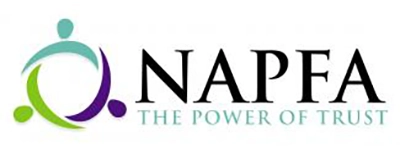Must You Have Goals to be Successful?
I have always struggled with goals. I consider myself a goal-oriented, reasonably high achieving person but I have a love-hate relationship with goals. A recent podcast opened a whole new approach to goals for me, and I suspect it will help some of you too.
Goal is a Four-Letter Word
We’ve all heard it—if you aim at nothing, you’ll hit it every time. We’re herded into goal mentality within months of birth: hold your head up, crawl, walk, talk, tie shoes, write your name, memorize state capitals, earn A’s, etc. It’s no wonder so many of us suffer goal fatigue—we’ve been trying to achieve them for decades!
Self-help culture and the military both encourage us to make goals that are SMART
Specific – lose weight
Measurable—10 pounds at a rate of 1 pound per week
Attainable – 10 pounds from a start of 250 pounds is usually easier than a start of 100 pounds
Relatable – A self-generated goal of losing 10 pounds is more relevant than being told to lose weight by a mother-in-law
Time-bound—lose 10 pounds at a rate of one pound a week for 10 weeks ending March 14th. This hopefully keeps the goal both front-of-mind; creates a sense of urgency; and promises an end to whatever sacrifices must be made during the goal period.
SMART goals sound great and the rubric is useful if you have a very specific goal that you want to achieve. But what if a goal, SMART or otherwise, isn’t what you want or need?
A Sordid History with Goals
As I said, I’m a goal-oriented person, but I’m actually loath to set SMART-type goals for what I’m coming to believe are really good reasons.
Goals consume me. I’m in triathlon hibernation right now, but every triathlon I’ve ever completed (plus the one I didn’t…) gobbled up my attention, my money, my time, and too often my happiness. I approached triathlon with goals and subgoals, e.g., finish… but finish under 12 hours with specific splits for each discipline, etc.
If I didn’t have goals, I would have struggled to organize my training and race day execution. The goals were very necessary for those requirements. But the intrinsic need to accomplish the triathlon and all its components was more of a direction than a goal.
Some goals can be downright problematic. When you meet a young officer that states a goal to become a Wing Commander, you probably have a certain reaction. Wanting to achieve that level of leadership, responsibility, authority, and promotion potential can be a signal of a power-hungry officer that’s “in it for the wrong reasons.”
The best Wing Commanders I’ve met were somewhat tortured to step into the role. On the one hand, they’re honored and humbled for the opportunity to serve. On the other, they’re wary from their career to date and apprehensive about what continued service might do to their family.
It’s likely that those future Wing Commanders simultaneously appreciate their upward trajectory; accept that the Air Force might “thank them for their service” at any time; and hope for a chance to throttle back for a season to reconstitute and enjoy some family time.
A goal might cause one to seek Wing Command no matter the cost however, a direction might create a path towards Wing Command and organize activity that might manifest the opportunity without foreclosing on other outcomes.
Perhaps we need goals to light the real path—direction.
Financial Goals
The financial planning process is very goal centric. A financial planner works with a family to identify goals to build plans to achieve the goals. But many roadblocks stand in the way of goal identification.
“What if my goals aren’t realistic? Maybe I should wait until ‘X’ happens to see if I should set this goal…”
“I don’t know how much I need to spend in retirement! I can barely tell you what I spend today.”
“I don’t know how much to save for Junior’s college. He’s eating dirt right now and we have 15 years before graduation. I just want him to stop eating dirt!”
“Every time I set a goal I either become obsessed with it or depressed that I’m never going to achieve it.”
“If we set a goal for annual travel, we’ll rule out spending on that home remodel.”
Financial goals can cause a great deal of analysis paralysis. But if we don’t set financial goals, won’t we be guilty of “aim at nothing, hit nothing?”
Financial Direction
If we replace financial goals with financial direction, we might face a different problem.
“I want to always be getting wealthier.” This is not only vague but creates risks like dying with too much money and too few fulfilling memories.
“I’ll save until I’m tired of working and then retire.” This might be fine, but just like driving without a map, it’s possible to miss the exit. Undershoots and overshoots cause real problems.
“We want Junior to go to a ‘good’ college.” Great, but that’s going to take some specific planning both for achievement and savings to make it a reality.
Direction alone creates risk of drift. Over short periods of time, it can be a great way to avoid goal fatigue, but the longer the time horizon, the greater the risk of a direction-only approach becoming a trip in the wrong direction.
Goals and Direction: A Goldilocks Approach?
Many financial goals have long time horizons. College starts out 18 years from birth. Retirement starts out decades from graduation. Even a car purchase five years from now leaves plenty of room for the goal to change in terms of cost, type, time horizon, etc.
Setting a specific goal for retirement in 25 years such as, “I want to be able to spend the equivalent of $150K in today’s dollars over a 30-year retirement starting in 20XX with a 90% probability of success from a Monte Carlo simulation while also leaving $XXX to each child and traveling on an extra $30K budget for the first 10 years of retirement…” certainly makes the financial planner’s job easy:
- Determine starting balance
- Determine balance required at retirement start to achieve spending, travel, and legacy goals
- Determine how much continued growth may occur during retirement
- Determine assumptions for inflation, investment returns, etc.
- Determine investor risk tolerance, risk capacity, and return requirement
- Determine annual/monthly savings required until retirement
But what if investments overperform assumptions? What if your career becomes intolerable? What if a health condition is going to limit travel as you age? So many curveballs can come along over the years.
At the same time, if we don’t throw down with at least some goals, we might close the door on saving at a high enough rate to enjoy future goals that evolve and clarify with time. It’s a bit of a Catch-22: Lack of a goal could prevent preparing for that goal, but a rigid goal could turn out to be the wrong goal.
A method for blending goals and direction is:
- Be willing to state goals knowing full well that you’re likely to modify or jettison them over time. g., “Pay off our primary home prior to retirement” could become “interest rates have stayed really low and we’re going to use our excess cashflow for travel before the kids graduate high school.”
- Organize actions such as saving to shape your trajectory towards, but not necessarily exactly at the goal. g., “Invest at least 15% of take-home pay to fund retirement spending” could become “After the last 10 years, we’re above glidepath and we’ll shift to 12% for now” or “Damn this stagflation, we need to bump up to 20% to retire at age 65…”
- Revisit both the goals, the activity, and the direction periodically. Most elements of a financial plan deserve a yearly review.
- Give yourself permission. This is the secret sauce. If you’re a goal-oriented/driven/obsessed person, willingly embracing a squishy goal may seem like heresy. Life and most things about it are going to change. Why shouldn’t we give room for goals to do the same?
When your future self determines that it’s a better fit to drive the current car an extra three years to free up cash to pay for a family reunion before Mom starts chemo, that’s okay. You’re not a failure because you didn’t stick with the goal. You’d probably feel like more of a failure for prioritizing a car refresh over a family experience.
Set the goal, organize the activity, revisit the goal, and give yourself permission to change.
A Strong Opinion Weakly Held
The concept of a strong opinion weakly held is that we can believe in something and support it with our current efforts while seeking to prove this belief wrong (or at least accepting proof that it’s wrong).
If you like to participate in political division, you might have a belief that members of the other party always support (insert thing you dislike). If this is a strong opinion weakly held then you’re willing to change your mind when presented with contrary evidence.
This dovetails with another of my favorite ideas, “You can’t reason a person out of an idea s/he was never reasoned into.” I.e., most religious people come to their faith through experience and culture. Evidence that proves the supernatural or divine is difficult to come by or empirically disprove. Thus, an atheist is unlikely to convert a believer with reason much the same as a believer is unlikely to convert an atheist without experience, culture, and a desire for faith.
What do these concepts have to do with financial planning?
“I think I want to retire on $150K per year, but I’ll check in on this assumption and the progress each year to refine it. I’m more willing to over-save for now, and I think the risk of outliving my money is low.” Wanting $150K is future spending is a strong opinion, a goal of sorts, but building in flexibility for future events and adaptations gives it the benefit of being weakly held.
The number $150K should be arrived at through reason so that we can use reason to re-prove or disprove it.
“I need to leave $XXX for each of my children when I die” may not come from a place of reason. If it does, it should stand up to scrutiny and scrutiny should be frequently invited. If it comes from a place other than reason, that’s probably okay, but holding that opinion weakly could build room for the rest of a financial plan to succeed.
At the same time, some financial goals might stem more from emotion than reason. If they lead to a fulfilling life, no problem. But if an emotion-driven goal, e.g., “I will start saving in 10 years so I can YOLO now” invites poverty down the road, it’s possible that instead of financial planning, financial therapy could be a better fit.
It’s great to have strong opinions (goals), but when they’re years if not decades away, holding them weakly can blend them into direction. This may be a better recipe for success.
Cleared to Rejoin
I’m willing to bet that most of the people reading this article consider themselves goal oriented. Sometimes SMART goals are a great fit. Sometimes they result in goal fatigue and disappointment. Blending goals and direction can create a path for long-term financial success. Goals can organize the near-term activity (saving $500 per month in an IRA) and contribute to the direction (having enough for needs wants and wishes in retirement) but leave plenty of flexibility for changing course and still having the resources that create choices.
Fight’s On!
Winged Wealth Management and Financial Planning LLC (WWMFP) is a registered investment advisor offering advisory services in the State of Florida and in other jurisdictions where exempted. Registration does not imply a certain level of skill or training.
This communication is for informational purposes only and is not intended as tax, accounting or legal advice, as an offer or solicitation of an offer to buy or sell, or as an endorsement of any company, security, fund, or other securities or non-securities offering. This communication should not be relied upon as the sole factor in an investment making decision.
Past performance is no indication of future results. Investment in securities involves significant risk and has the potential for partial or complete loss of funds invested. It should not be assumed that any recommendations made will be profitable or equal the performance noted in this publication.
The information herein is provided “AS IS” and without warranties of any kind either express or implied. To the fullest extent permissible pursuant to applicable laws, Winged Wealth Management and Financial Planning (referred to as “WWMFP”) disclaims all warranties, express or implied, including, but not limited to, implied warranties of merchantability, non-infringement, and suitability for a particular purpose.
All opinions and estimates constitute WWMFP’s judgement as of the date of this communication and are subject to change without notice. WWMFP does not warrant that the information will be free from error. The information should not be relied upon for purposes of transacting securities or other investments. Your use of the information is at your sole risk. Under no circumstances shall WWMFP be liable for any direct, indirect, special or consequential damages that result from the use of, or the inability to use, the information provided herein, even if WWMFP or a WWMFP authorized representative has been advised of the possibility of such damages. Information contained herein should not be considered a solicitation to buy, an offer to sell, or a recommendation of any security in any jurisdiction where such offer, solicitation, or recommendation would be unlawful or unauthorized.






